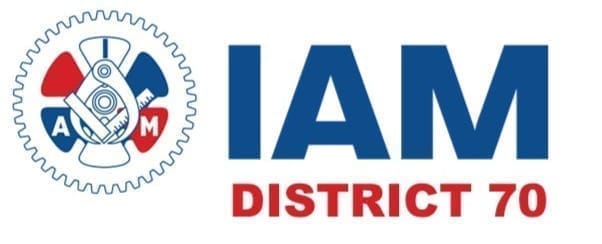8 Ways the Inflation Reduction Act Helps Working People
On Wednesday, Senate Majority Leader Chuck Schumer (N.Y.) announced an agreement with Sen. Joe Manchin (W.Va.) to bring a slimmed-down version of the bill previously known as the Build Back Better Act to the Senate floor before the start of the August recess
AFL-CIO President Liz Shuler applauded the agreement, known as the Inflation Reduction Act:
This new bill shows that Congress understands we urgently need economic solutions that offer real help for working families. Taking these steps to lower health care costs and address our broken tax code that has allowed the extremely wealthy and the biggest corporations to avoid paying their fair share will deliver fundamental economic change in our nation.
Here are eight provisions of the legislation that will benefit working people:
1. Negotiation of Lower Drug Prices for Seniors: Medicare will begin negotiating lower drug prices for seniors and people with disabilities. Drug price negotiation will focus on the highest expenditure drugs that have been on the market for between nine and 13 years. Negotiation will also save the Medicare program $99 billion, which will bolster the program financially.
2. Inflation Caps for Prescription Drugs: The bill caps increases in prescription drug prices to the rate of inflation, putting a much-needed limit on how much manufacturers can raise costs for people who rely on prescriptions to manage their health. The current bill language applies this cap to drugs sold to people in private health plans as well as people in Medicare. These provisions are expected to save private plans and the Medicare program billions of dollars.
3. Improved Medicare Prescription Benefits: Seniors’ out-of-pocket costs for prescription drugs covered by Medicare Part D will be capped at $2,000 a year, benefitting 1.4 million enrollees annually. In addition, cost sharing for vaccines will be reduced to $0. This cap will take an incredible weight off of the shoulders of older adults living on a fixed income.
4. Preventing a Premium Spike for ACA Enrollees: The bill prevents premium increases for 13 million people for the next three years by extending the enhanced premium tax credits for people with Affordable Care Act marketplace coverage. The enhanced credits provided by the American Rescue Plan Act significantly reduce premiums for marketplace enrollees with low/middle incomes and cap premiums at 8.5% of income for all enrollees; without this new bill, the policy will expire at the end of 2022.
5. Investment in Climate, Energy and American Manufacturing: The legislation makes historic public investments in clean energy deployment and domestic manufacturing of clean energy goods. It includes not just wind and solar, but the full suite of technologies that labor traditionally supports—including nuclear, carbon capture and hydrogen. These provisions dramatically lower the cost of clean energy, positioning the U.S. to make deep carbon emissions reductions while preserving and creating millions of jobs, with an especially big boost to manufacturing. Importantly for fairness and diversity, it pushes investment to fossil fuel and underserved communities. While the “union bonus” incentives we advocated for were not included, the bill retains provisions that strengthen prevailing wage, apprenticeship and domestic content standards throughout.
6. Investing $80 Billion in the IRS to Strengthen Enforcement: This provision is expected to increase IRS collections by $203 billion and will not be used to increase taxes on any taxpayer with taxable income below $400,000.
7. Imposing a 15% Minimum Corporate Tax on Corporations with Profits Exceeding $1 Billion: This provision would make sure that the largest corporations, many of which avoid paying taxes altogether, pay a minimum tax of 15% on their net profits. It would raise $313 billion.
8. Closing the “Carried Interest” Tax Loophole: This provision would close the tax loophole that allows wealthy investment fund managers to pay lower taxes than their support staff. It would raise $14 billion.
While this legislation is an important victory, Shuler said there is more to be done:
At the same time, we need to keep working to deliver further relief that working people need: a bolstered right to organize and help accessing critical supports like child care and affordable housing. This bill represents an incredible step forward, and we will keep fighting to make more progress for the people who power our economy.
Kenneth Quinnell
Mon, 08/01/2022 – 15:15
